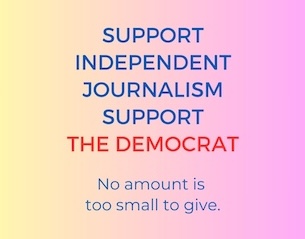- World
- Can’t Place It? Why WHO Hopes Greek Names For Covid-19 Variants Will Be A Game Changer
Can’t Place It? Why WHO Hopes Greek Names For Covid-19 Variants Will Be A Game Changer
If you’re surprised that the World Health Organisation (WHO) has come up with Greek labels for significant novel coronavirus variants, don’t be. It is true that a variant by any other name will not become any less worrisome than it already is, but neutral labels for such mutants are intended as much to fight the

Monikers such as the ‘China’ or ‘Wuhan’ virus, and the ‘UK’, ‘Brazil’ or ‘Indian’ variant may not only be prejudicial but inaccurate, too. But the scientific names don’t exactly roll off the tongue and often add to confusion among the public. Which is why the UN health agency put together a panel of top experts to suggest the best possible way of naming these variants. And, true to the form of modern science, they settled on the letters of the Greek alphabet.
Alpha, Delta… Bravo: New Names To Fight Prejudice, Bring Accuracy
Shakespeare had summed up the futility of labels in his rhetorical query, “What’s in a name?”, but while a rose may not need to worry what it is called, the same cannot be said of a deadly virus that has caused devastation across the world. Described as a ‘Chinese virus’, it automatically promotes bias and hatred against people from East Asia. And not only that, it also undermines actual research into the origins of the virus.
Similar is the case with variants. The UK variant is so-called because it was first identified in that country thanks to its advanced genome sequencing facilities. It could very well have arisen elsewhere and was carried into the country.
Earlier this month, the Indian government sent out an advisory to all social media firms that they should remove any references to the ‘Indian variant’ in posts on their platforms. The move came on the heels of the controversy over a ‘Singapore strain’ after Delhi Chief Minister Arvind Kejriwal tweeted that the island nation had reported an alarming new mutant. Singapore hit back saying that the strain it was worried about was actually the ‘Indian’ strain. It had also asked social media platforms to clarify that there was no ‘Singapore strain’.
So, clearly, variant names in the time of Covid-19 is a sensitive topic. Which is why the WHO brought together “a group of scientists from the WHO Virus Evolution Working Group, the WHO Covid-19 reference laboratory network, representatives from GISAID, Nextstrain, Pango and additional experts in virological, microbial nomenclature and communication from several countries and agencies to consider easy-to-pronounce and non-stigmatising labels”. As the heavy-duty composition of the panel suggests, WHO was not taking the question of names lightly.
According to website STAT, in discussions that ran for months, officials first touched upon, and then dismissed, the possibility of having two-syllable combinations, or portmanteau words, and the names of Greek gods and goddesses before settling on letters of the Greek alphabet.
The sequence of names down from Alpha, Beta, Gamma, Delta and so on will indicate the order of when these strains were detected. Thus the UK or Kent variant (B.1.1.7) will be called Alpha and the South Africa variant (B.1.351) is Beta. The Brazil variant (P.1) is to be termed Gamma while the variant first seen in India (B.1.617.2) gets the name Delta.
There are 24 letters in the Greek alphabet and WHO officials have said that, once these are exhausted, a new name series will be announced. However, the existing names of these variants — a combination of alphabets and numbers separated by dots that is so difficult for the common man to grasp but illuminating for scientists — will continue to be used in scientific circles.
“While they have their advantages, these scientific names can be difficult to say and recall and are prone to misreporting… As a result, people often resort to calling variants by the places where they are detected, which is stigmatising and discriminatory. To avoid this and to simplify public communications, WHO encourages national authorities, media outlets and others to adopt these new labels,” the health agency said.
With such labels available, it is also hoped that if and when new variants are detected countries will not shy away from announcing these as they will not have to be afraid that they will be identified with the new variant, to the detriment of its soft power and its people.
How Are Diseases And Viruses Named Anyway?
Without a name, no conversation, scientific or public, is possible about any emergent disease or pathogen. Nobody recognises that better than scientists and the media. But the naming of viruses and diseases moves differently for both. While scientists can be happy with names like B.1.1.7, it is difficult for the layman to grasp these.
What commonly tends to happen, therefore, is that a disease is named for the place where its first cases were reported. Thus, Zika is known after the Zika forest in Uganda and the Ebola river in the Democratic Republic of the Congo gives its name to the Ebola disease.
Earlier, the 1918 influenza pandemic was termed the Spanish flu although experts are quite convinced that it did not arise first in Spain though the country was the first to report on the outbreak in its population.
In the interconnected world of today, such names can sow seeds of discrimination and bias, hitting everything from economic activity to cultural exchange. Which is why the WHO came up with an advisory in 2015 on necessary principles to be kept in mind for naming diseases. It said that geographic locations, people’s names, species of animal, and food items should be avoided while coming up with the name of a new disease.
That sensitivity is also reflected in the name Covid-19 for the disease caused by the Sars-CoV-2 virus, which avoids any reference to China, where the first cases were reported in December 2019.
But while WHO decides disease names, the names of new viruses is determined by the International Committee on Taxonomy of Viruses (ICTV), which came up with Sars-CoV-2 as the name for the novel coronavirus that causes Covid-19. Which leaves the variants. Since these are cropping up with great regularity around the world during the pandemic, their names are devised on the go. Often, that results in labels like the ‘South African’ or ‘Brazil’ variant.
But at the scientific level, too, there can be competing systems of nomenclature. There are at least three different approaches to naming variants that are identified with the platforms Gisaid, Pango and Nextstrain. But that can see the same variant have as many as three different names. For example, the variant found in India, now called ‘Delta’, is also known as the B.1.617.2, G/452R.V3,a nd 21A/S:478K.
Such representation holds clues to the variant’s ancestry and the type of mutation that it encapsulates. Scientifically speaking, they clear provide a clear indication of what is being spoken about, but these terms are rather unwieldy for public discussion.
Ultimately, in devoting substantial time and effort in coming up with such names, WHO would be hoping that they are embraced by the public and the media in talking about the variants. According to molecular epidemiologist Emma Hodcroft quoted by the New York Times, if these new Greek letter labels don’t stick, that will only lead to more confusion and people will go back to using geographical place names.
Read all the Latest News, Breaking News and Coronavirus News here











